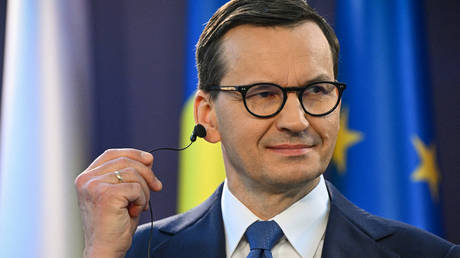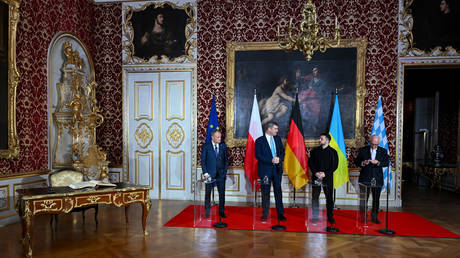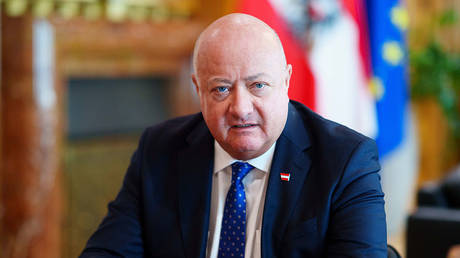
“We do not want such scenes on Polish streets,” the clip uploaded by Mateusz Morawiecki said
Polish Prime Minister Mateusz Morawiecki has taken a swipe at the proposed EU migration overhaul by sharing a video that juxtaposed scenes of violent protests in France against the idyllic landscape of Polish cities. The premier himself floated his own plan seeking to curb mass migration.
On Friday, Morawiecki uploaded a clip on his Twitter page in support of a Polish-backed plan called “Europe of Secure Borders.” The video depicted French streets and cars engulfed in flames, with rioters smashing store windows. The pictures of utter devastation contrasted with peaceful and tidy Polish cities bustling with life.
“We do not want such scenes on Polish streets,” the caption in the video read.
The violence in France erupted over the death of a 17-year-old at the hands of a police officer on Tuesday. According to local authorities, nearly 1,000 people have been arrested across the country and 45,000 police officers deployed to handle the upheaval.
Morawiecki’s tweet coincides with his harsh criticism of a migration overhaul proposal that gives EU members three options to deal with the problem: accept relocated asylum seekers, pay €20,000 ($21,000) for each rejected applicant, or finance operational support.
By embracing this migration reform “Europe encourages smugglers to send more transports,” the Polish premier charged. “If we invite 30,000, [then]300,000 will come. If we invite a million, 30 million will come. It’s an endless spiral,” he said, adding that opening Europe’s borders would not only empower criminals but also result in “an increased risk of terrorism in Europe.”
However, touting Poland as “an example of a successful migration policy,” Morawiecki proposed his own plan that envisages ramping up investment in guarding the EU’s external borders and buttressing Frontex, the bloc’s border agency.
He also suggested supporting development in countries that are the source of mass migration, reducing social benefits for people from outside the EU, and cracking down on smugglers and the black market.
The EU has had a hard time dealing with the inflow of migrants for at least several years. According to Frontex data, the bloc’s authorities registered 330,000 illegal border crossings at the EU external border in 2022, which the agency described as the highest number since 2016 and an increase of 64% from the previous year.




